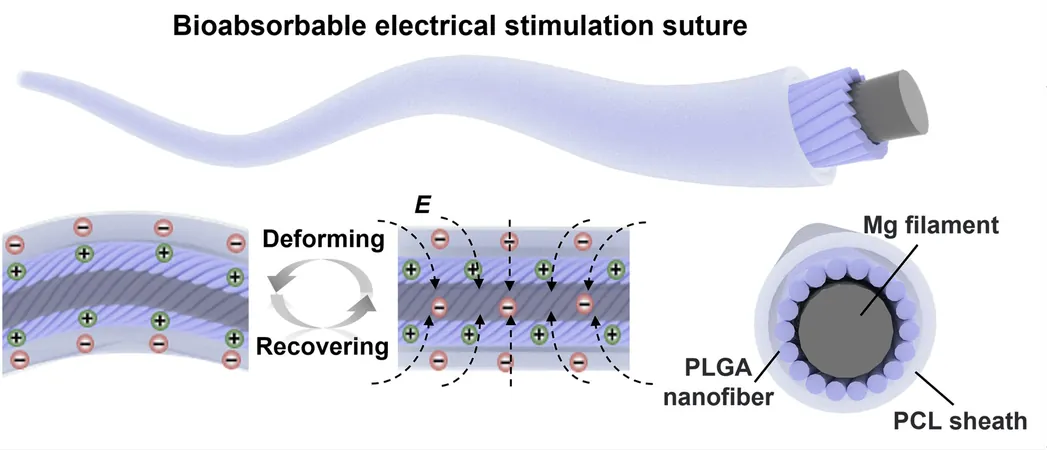
Groundbreaking Study Unveils Genetic Clues in Schizophrenia Development
2024-10-11
Author: Li
A groundbreaking study conducted by researchers from the Icahn School of Medicine at Mount Sinai and Harvard Medical School has revealed significant genetic mutations tied to brain development, potentially illuminating the complex origins of schizophrenia. Published in the prestigious journal Science, the research sheds light on both inherited and post-conception mutations that may substantially increase an individual’s risk for this challenging mental health disorder.
The research article titled "Somatic Mosaicism in Schizophrenia Brains Reveals Prenatal Mutational Processes" dives deep into the genetic underpinnings of schizophrenia, focusing on specific mutations called single-nucleotide variants. These are tiny yet critical changes at the molecular level that occur within the DNA sequence. What’s particularly striking is that the study is the first of its kind to highlight how these mutations, which can develop during brain development after conception, may work in concert with traditional inherited genetic factors.
Investigating postmortem brain tissue, the researchers meticulously compared the dorsolateral prefrontal cortex—the region vital for cognitive abilities—of individuals with schizophrenia to a control group without the disorder. The outcome was revealing: those affected by schizophrenia exhibited a higher frequency of these mutations in certain brain regions, suggesting a tangible disruption in biological processes essential for proper brain function and development.
Co-senior author Dr. Andrew Chess, a Professor of Genetics and Genomic Sciences at Icahn Mount Sinai, emphasized the significance of the findings, stating, “This study provides an important insight into the genetic factors contributing to schizophrenia. Beyond the inherited mutations we typically think of, we now see that mutations arising during brain development may also contribute to the disease.”
Given that schizophrenia impacts about 1% of the global population, understanding its multifaceted origins is vital for public health and therapeutic strategies. The findings point to a dual pathway of genetic risk—both inherited and somatic—that needs further exploration.
Intriguingly, the researchers also discovered that some mutations displayed a molecular signature reminiscent of those linked to inflammation, hinting at the potential influence of environmental factors—such as maternal infections during pregnancy—on the development of schizophrenia.
This pioneering research opens new avenues for therapeutic exploration, suggesting that understanding these genetic modifications may lead to finding novel targets for drug development. The research team plans to broaden their investigation by analyzing a larger cohort, utilizing emerging DNA technologies to provide greater insights into the genetic changes associated with schizophrenia.
The ultimate objective of this work is to enhance our grasp of how these genetic alterations affect brain development and contribute to mental health issues. Dr. Chess concluded with optimism about the future, asserting, “As we continue to explore these mutations and their effects on brain function, we hope to uncover new pathways for potential therapeutic interventions. By expanding the number of cases we study and using cutting-edge technologies, we aim to better understand the genetic mechanisms behind schizophrenia and ultimately improve outcomes for those affected by the disorder.”
Stay tuned for more research updates that could reshape the landscape of mental health treatment and offer hope to millions facing the challenges of schizophrenia.




 Brasil (PT)
Brasil (PT)
 Canada (EN)
Canada (EN)
 Chile (ES)
Chile (ES)
 España (ES)
España (ES)
 France (FR)
France (FR)
 Hong Kong (EN)
Hong Kong (EN)
 Italia (IT)
Italia (IT)
 日本 (JA)
日本 (JA)
 Magyarország (HU)
Magyarország (HU)
 Norge (NO)
Norge (NO)
 Polska (PL)
Polska (PL)
 Schweiz (DE)
Schweiz (DE)
 Singapore (EN)
Singapore (EN)
 Sverige (SV)
Sverige (SV)
 Suomi (FI)
Suomi (FI)
 Türkiye (TR)
Türkiye (TR)